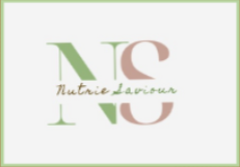While calcium is important for bone health, there are several other minerals crucial for overall well-being, especially for women. These minerals play key roles in various bodily functions, from supporting bone density to regulating hormones. Let’s explore five essential minerals beyond calcium that every woman should prioritize in her diet for optimal health.
- Iron: Iron is essential for women’s health as it plays a vital role in transporting oxygen throughout the body. Many women are at risk of iron deficiency, particularly during menstruation and pregnancy. Iron deficiency can lead to fatigue, weakness, and anemia. Incorporating iron-rich foods such as lean meats, poultry, beans, lentils, and fortified cereals can help prevent deficiency and promote energy levels.
- Magnesium: Magnesium is involved in over 300 biochemical reactions in the body, including muscle and nerve function, blood sugar regulation, and bone health. Women often have inadequate magnesium intake, which can contribute to muscle cramps, fatigue, and mood swings. Foods rich in magnesium include nuts, seeds, whole grains, leafy greens, and dark chocolate. Ensuring sufficient magnesium intake can support overall well-being and help alleviate menstrual symptoms.
- Zinc: Zinc is essential for immune function, wound healing, and DNA synthesis. Women, especially those who are pregnant or breastfeeding, require adequate zinc intake for fetal development and milk production. Zinc also plays a role in regulating hormones and may help manage symptoms of PMS and acne. Foods high in zinc include seafood, lean meats, poultry, nuts, seeds, and legumes. Including these foods in your diet can support immune health and hormonal balance.
- Iodine: Iodine is crucial for thyroid function, which regulates metabolism, growth, and energy production. Insufficient iodine intake can lead to thyroid disorders, affecting weight management, energy levels, and cognitive function. Women of childbearing age, pregnant women, and breastfeeding mothers are particularly at risk of iodine deficiency. Good dietary sources of iodine include iodized salt, seafood, seaweed, dairy products, and eggs. Ensuring adequate iodine intake is essential for overall health, especially during pregnancy and breastfeeding.
- Selenium: Selenium is an antioxidant mineral that helps protect cells from damage and supports thyroid function. It also plays a role in immune function and may help reduce the risk of chronic diseases such as cancer and heart disease. Women with thyroid disorders or autoimmune conditions may benefit from adequate selenium intake. Selenium-rich foods include Brazil nuts, seafood, poultry, eggs, and whole grains. Incorporating these foods into your diet can help maintain selenium levels and support overall health.
Conclusion: While calcium is important, women should focus on incorporating a variety of essential minerals into their diet to support overall health and well-being. Iron, magnesium, zinc, iodine, and selenium play vital roles in various bodily functions, from energy metabolism to hormonal balance. By including a diverse range of nutrient-rich foods in your diet, you can ensure you’re getting the essential minerals your body needs to thrive.

